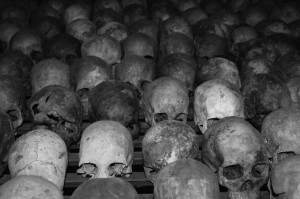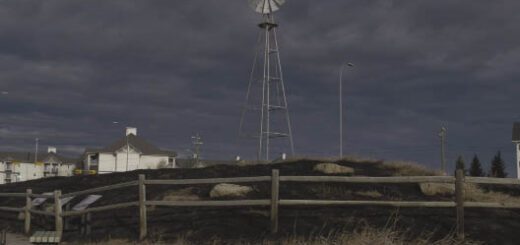A million lives commemorated
Remembering the 1994 genocide in Rwanda
Melchior Cyusa
Guest Columnist
Since the end of a three-month brutal genocide against Tutsi people of Rwanda in 1994, Rwandans inside and outside of the country have been commemorating the lives of their loved ones every year in April.
The pain suffered by both the victims and survivors reached far beyond the borders of Rwanda, and it has been the norm to see people from different citizenry participate in memorial services and ceremonies aimed at honouring those who perished.
Although some may see the genocide as merely a matter of historical record, to the children and youth who lived it a commemoration can evoke memories that are difficult to grapple with, let alone tell to others.
Just think how hard it must have been to hear or watch loved ones being killed, unsure who ordered their deaths or even who was next in line to die. This was the reality for many who survived the Rwandan genocide.
One such survivor is Yvette Rugasaguhunga, the founder of Yvette Rugasaguhunga Survivors’ Education Fund (YRSEF) based in New York. When the genocide started in 1994, Rugasaguhunga was 14 years old. She lived with her father, grandmother, and siblings; her mother had passed on eight years before the genocide.
Rugasaguhunga tragically lost her father, four siblings and three grandparents in the genocide. Despite striving to face the world without both parents in her life, it was not until 2004 that she decided to share her survival story.
Through her foundation, Rugasaguhunga travels to different cities and countries reiterating the promise of “never again” in the effort to see humanity defined by peace and unity, and in the hope of preventing future genocides.
On April 13, 2013, Rugasaguhunga will join the Rwandan Canadian Society of Calgary as the keynote speaker for the Rwandan Genocide commemoration ceremony at Mount Royal University.
Other survivors of the genocide, many whose lives parallel Rugasaguhunga’s, are also expected to attend the commemoration service.
One man living in Calgary, who has requested his name re- main anonymous, was only nine when the genocide came to his home in the eastern province of Kibungo, Rwanda. On the second day of genocide, he saw the killing of his aunt and his three-year-old cousin, and then, on the same day, he also saw the murder of his parents and five siblings.
He said he could distinguish the victims from the killers based on whether he had seen them before, whether they had machetes, guns, or clubs, or whether they were hiding like himself.
As the days advanced and as the war intensified between rebels and genocidaires, his only hope was to survive the next day and live unharmed. He did survive, and although he was part of the many orphans of the genocide, his life took on a new meaning.
This story and many more like it call us to join survivors to reflect on the many people lost in the Rwandan genocide. Our duty is not only to remember those who were killed, but also to honour them by taking up the duty that their deaths have bequeathed to us: the task of reconciliation.
We talk of “never again,” yet so often it happens. It happened in Ireland, in Sierra Leone, in Kenya, and still happens today.
Have we turned into mere conscious beings and not self-conscious beings? I think we are self-conscious, and it lies in our hands to choose peace over wars.
In an endeavour to reconcile offending parties in Northern Ireland, one sociologist and peace builder, John Paul Lederach, stirs our imaginations by stating that reconciliation has nothing to do with “forgive and forget.” Rather, he says, the term is rooted in the more appropriate statement of “remember and change.”
To this end, Rwandans in Calgary remember. This year the commemoration takes place at Mount Royal University on April 13, 2013.
The event includes members from the local Rwandan community, dignitaries from the Alberta Government, the MRU community — including students, staff, and faculty — and local Albertan who share in the importance of this event.
The ceremony will be held at Jenkins Theatre and the doors will be open to the public at 3 p.m. MRU professor Glen Ryland, who teaches a course in general education on the Rwandan genocide, will open the ceremony.
As an instructor who focuses on genocide studies, Ryland tells his students that the case of Rwanda gives us reason to pause and think about worst and the best in humanity: from hatred, cruelty and murder to forgiveness, reconstruction, and reconciliation.
Melchior Cyusa is the Secretary General for the Rwandan Canadian Society of Calgary




